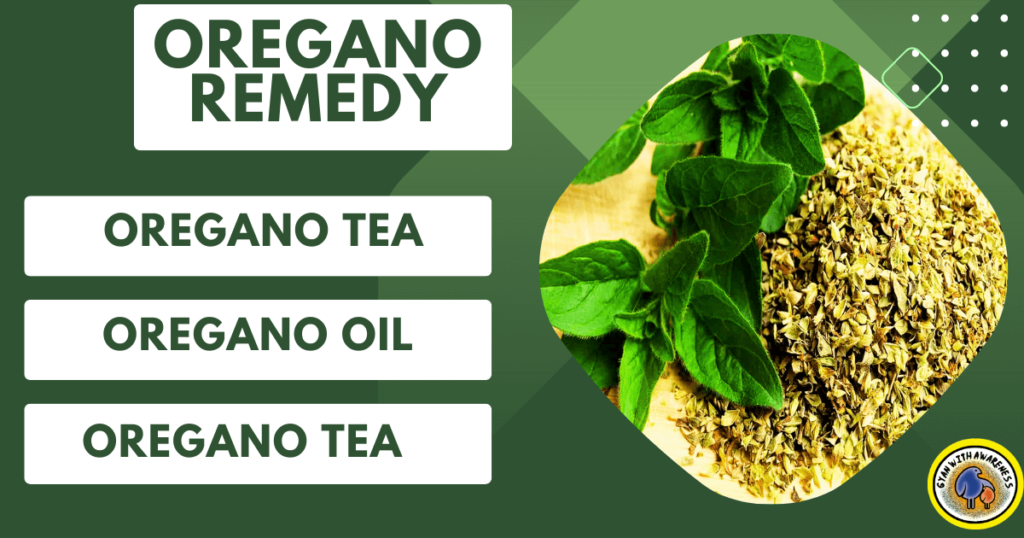Welcome to Rosemary: Victory on Diabetes with 10 Remedies- Part 1 where we delve into the realm of natural remedies and practical tips for managing diabetes from the comfort of your own home. In the realm of natural remedies, Rosemary stands out as a versatile and potent herb with a myriad of benefits. Rosemary has been cherished for centuries due to its aromatic fragrance and culinary uses. This remarkable herb, Rosemary, possesses not only a distinct flavor but also a range of health-promoting properties.
Rosemary’s inclusion in traditional medicine and holistic practices highlights its significance in various cultures. Rosemary in Hindi is called “Ghulmendhi“, As we delve into the world of herbal remedies, exploring the potential of Rosemary unveils a wealth of wellness possibilities. Rosemary in Hindi’s name is “Ghulmendhi“, found basically near the river Ganga region. Whether used in cooking, essential oils, or herbal teas, Rosemary continues to capture our attention and offer its unique contributions to overall health and vitality.

In this series, we explore a range of holistic approaches and lifestyle modifications that can complement medical treatment and support overall well-being.
In the world of holistic health, several natural remedies have emerged as promising aids in managing diabetes. Rosemary, a familiar culinary herb, offers more than just flavor; its anti-inflammatory and antioxidant properties have shown potential in improving insulin sensitivity and reducing blood sugar levels.
Diabetes can be a difficult journey, but with the right information and support, you can take proactive steps toward better health. This series aims to provide you with useful insights, evidence-based information, and actionable tips to help you manage and promote optimal health while reducing the risk of complications.
In Part 1, we will focus on simple yet powerful home remedies that have gained popularity for their potential benefits in diabetes management. From dietary modifications to herbal remedies, and stress management techniques to physical activity recommendations, we will explore a variety of strategies that can support your journey towards a healthier and balanced life.
“Diabetes and Natural Home Remedies”
How Rosemary and other remedies work:
Rosemary essential oil is very much in demand. Not only Rosemary essential oil, rosemary essential oil for hair, rosemary seeds, rosemary flower, etc. are also in demand. Rosemary uses, are in many ways, further you will know in this article. Ginseng, a revered herb in traditional medicine, exhibits the ability to regulate blood sugar levels by mimicking insulin’s effects and enhancing its activity. Sage, another culinary staple, holds anti-diabetic potential through its ability to slow carbohydrate digestion, leading to steadier blood sugar levels. Rosemary plant in Hindi called Gulmohar or Rosmarinus officinal
Rosemary in Tamil is called TMarikkolundu. Rosemary in Telugu is called Salvia rosmarinus a series of articles that focus on providing valuable information and practical tips for managing diabetes using natural remedies and home-based solutions. The series explores various approaches, including dietary modifications, herbal remedies, lifestyle changes, and self-care practices that can be implemented at home to support diabetes management. Rosemary uses are very common today.
Living with diabetes requires careful attention to blood sugar levels, lifestyle choices, and overall health. While medical treatment and prescribed medications play a crucial role, many individuals also seek complementary strategies to enhance their well-being. Natural home cure tips aim to provide additional tools and knowledge to support diabetes management, improve blood sugar control, and promote overall health and quality of life.
These tips are intended to complement medical advice and treatment plans, and they should be discussed with healthcare professionals before implementation. Each article in the series delves into specific topics related to diabetes management and offers practical suggestions for incorporating natural remedies and lifestyle changes into daily routines.
Read More: 12 Exercises for Diabetes: Best Plan to Manage Your Health Part -1
12 Diabetes Exercises for a Vibrant Life: Fit and Fearless Part -2
1. Rosemary Remedy Recipe:

Rosemary Tea:
Boil a cup of water and add 1 teaspoon of dried rosemary leaves. Let it steep for 5-10 minutes, then strain the tea. Drink this herbal infusion daily to help regulate blood sugar levels and improve insulin sensitivity.
Massage with Rosemary Essential Oil:
Combine a few drops of oil with coconut or almond oil. Before going to bed, massage the mixture into the soles of your feet. Rosemary essential oil for hair is also very useful in reducing stress, This can aid in circulation, inflammation reduction, and overall well-being. Rosemary essential oil helps
Rosemary and Lemon Water:
Add a few sprigs of fresh rosemary and slices of lemon to a pitcher of water. Let it infuse overnight in the refrigerator. Drink this refreshing-infused water throughout the day to stay hydrated and benefit from the antioxidants and anti-inflammatory properties of rosemary.
Rosemary benefits:
Rosemary may help with diabetes management in the following ways:
Rosemary contains compounds that may help improve insulin sensitivity and lower blood sugar levels, thereby aiding in diabetes control.
Antioxidant Support: Its rich antioxidant content could help combat oxidative stress, which is often elevated in individuals with diabetes.
Anti-Inflammatory Properties: Rosemary’s anti-inflammatory effects might assist in reducing inflammation associated with diabetes and its complications.
Neurological Protection: Some studies suggest that rosemary may have neuroprotective properties, potentially benefiting nerve health affected by diabetes-related neuropathy.
Digestive Aid: Rosemary could aid digestion and metabolism, contributing indirectly to overall diabetes management.
Incorporating rosemary into a healthy diet may provide these potential benefits for diabetics. Before making major dietary changes, always consult a healthcare professional.
2. Ginseng Remedy Recipe:

Ginseng Tea:
Steep 1-2 teaspoons of dried ginseng root or ginseng tea bags in a cup of hot water for 5-10 minutes. Strain and drink the tea. Ginseng is believed to help regulate blood sugar levels and improve insulin sensitivity.
Ginseng Capsules:
Consult with a healthcare professional or herbalist for the appropriate dosage and type of ginseng capsules. Ginseng capsules can be taken daily as a supplement to support diabetes management and overall well-being.
Ginseng and Green Tea Blend:
Create a potent blend by mixing a teaspoon of ginseng powder or freshly grated root with a cup of freshly brewed green tea. Enhance the flavor with a touch of zesty lemon juice. This fusion offers a dual antioxidant boost and the possibility of aiding in glucose regulation.
Ginseng Benefits:
Ginseng may offer several potential benefits for diabetes management:
Blood Sugar Regulation: Ginseng’s active compounds might help improve insulin sensitivity, assisting in maintaining stable blood sugar levels.
Stress Reduction: Adaptogenic properties of ginseng may help manage stress, which can impact blood sugar control in individuals with diabetes.
Antioxidant Action: The antioxidants in ginseng could counteract oxidative stress, a contributing factor in diabetes-related complications.
Improved Energy: Ginseng might enhance energy levels, potentially combating fatigue often experienced by those with diabetes.
Inflammation Control: Some studies suggest ginseng’s anti-inflammatory effects, which could aid in reducing inflammation associated with diabetes.
As with any supplement, it’s essential to consult a healthcare professional before incorporating ginseng into your diabetes management plan.
3. Sage Remedy Recipe:

Sage Infusion:
Boil a cup of water and add 1 teaspoon of dried sage leaves. Let it steep for 10-15 minutes, then strain the infusion. Drink this herbal tea daily to potentially help regulate blood sugar levels and improve digestion.
Sage Inhalation:
Boil water in a pot and introduce a handful of fresh sage leaves. After removing from heat, position your head over the pot and drape a towel over it, forming a steam enclosure. Inhale the steam for several minutes, offering potential relief for respiratory concerns commonly linked to diabetes.
Sage Mouthwash:
Prepare a strong sage tea by steeping sage leaves in hot water for 20-30 minutes. Strain the liquid and let it cool. Use this herbal infusion as a mouthwash to help promote oral health, as individuals with diabetes are prone to gum disease.
Sage benefits:
Sage may offer several potential benefits for diabetes management:
Blood Sugar Control: Certain compounds in sage may help regulate blood sugar levels, contributing to improved glucose management.
Improved Insulin Sensitivity: According to some research, sage may improve insulin sensitivity, resulting in better blood sugar utilization.
Neuroprotection: Sage’s compounds may have neuroprotective properties, benefiting nerve health and lowering the risk of diabetic neuropathy.
Individuals with diabetes may benefit from incorporating sage into their diet under the supervision of a healthcare professional.
Sage contains a high concentration of antioxidants, which can aid in the neutralization of harmful free radicals and the reduction of oxidative stress associated with diabetes.
Sage’s anti-inflammatory properties may help to reduce inflammation caused by diabetes and its complications.
4. Gymnema Sylvestre or Gurmar Remedy Recipe:

Gymnema Sylvestre Tea:
Steep 1-2 teaspoons of dried Gymnema Sylvestre leaves in a cup of hot water for 10-15 minutes. Strain and drink the tea. Gymnema Sylvestre is known for its potential to support healthy blood sugar levels by suppressing sugar cravings.
Gymnema Sylvestre Capsules:
Consult with a healthcare professional or herbalist for the appropriate dosage and type of Gymnema Sylvestre capsules. Gymnema Sylvestre capsules can be taken daily as a supplement to potentially help manage blood sugar levels.
Gymnema Sylvestre and Cinnamon Blend:
Mix equal parts of Gymnema Sylvestre powder and cinnamon powder. Sprinkle this blend on your meals or add it to your beverages for added flavor and potential blood sugar-regulating effects.
Gymnema Sylvestre Benefits:
Gymnema Sylvestre may offer several potential benefits for diabetes management:
Blood Sugar Regulation: Gymnema Sylvestre is known as the “sugar destroyer” due to its potential to reduce sugar absorption, aiding in maintaining stable blood sugar levels.
Reduced Sugar Cravings: Some research suggests that Gymnema Sylvestre may help curb sweet cravings, supporting efforts to reduce sugar consumption.
Improved Insulin Function: It may enhance insulin production and sensitivity, contributing to better glucose utilization and control.
Potential Weight Management: Gymnema Sylvestre could aid weight loss efforts by promoting reduced sugar intake and improved insulin action.
Lower A1C Levels: Regular use may result in lower A1C levels, indicating better long-term blood sugar control.
To ensure safe and effective use, incorporate Gymnema Sylvestre into a diabetes management plan under the supervision of a healthcare professional.
5. Oregano Remedy Recipe:

Oregano Tea:
Steep 1-2 teaspoons of dried oregano leaves in a cup of hot water for 10-15 minutes to make oregano tea. Drink the tea after straining it. This beverage is high in antioxidants and may aid in insulin sensitivity and glucose control.
Oregano Oil:
Take a small amount of oregano essential oil and coconut or olive oil. Apply the thinned mixture gently to areas affected by neuropathy or skin infections, which are common complications of diabetes. The antimicrobial properties of oregano oil may aid in the treatment of infections.
Oregano Seasoning:
Incorporate dried oregano leaves into your cooking as a healthy seasoning option. Sprinkle it on salads, soups, or roasted vegetables for added flavor and potential health benefits.
Oregano Benefits:
Oregano may offer several potential benefits for diabetes management:
Blood Sugar Regulation: Oregano contains compounds that could help regulate blood sugar levels, aiding in maintaining balanced glucose levels.
Antioxidant Power: Rich in antioxidants, oregano can combat oxidative stress, which contributes to diabetes-related complications.
Anti-Inflammatory Effects: Oregano’s anti-inflammatory properties might help reduce inflammation associated with diabetes.
Digestive Support: It may aid digestion and nutrient absorption, indirectly benefiting diabetes management.
Immune Boost: Oregano’s antimicrobial properties could support the immune system, which is important for overall health in individuals with diabetes.
To ensure that oregano complements your diabetes management plan effectively, incorporate it into meals or take it as a supplement.
Consult a healthcare professional or herbalist before using any herbal remedies, especially if you have underlying health conditions or are taking medications. They can provide tailored advice and ensure that the treatments are suitable for you.
In conclusion, finally, Rosemary, like many other natural remedies, has the potential to help diabetics. Their ability to regulate blood sugar levels, provide antioxidant support, reduce inflammation, and provide other health benefits provides a complementary approach to diabetes management. However, it is critical to approach these remedies as part of a comprehensive strategy that includes medical advice, a balanced diet, regular exercise, and proper medication. Before incorporating any new remedy into the overall diabetes management plan, it is critical to consult with a healthcare professional.
These natural remedies, when integrated thoughtfully, provide an alternative approach to diabetes management that complements conventional treatments. However, consulting healthcare professionals before making any changes is crucial due to potential individual variations. By embracing these herbal allies, individuals navigating diabetes management can tap into the potential of nature’s offerings to support their well-being.
Read More: Dangerous Complications: Decoding 8 Health Risks Linked to Diabetes
FAQ:
What is the herb name for rosemary?
The herb name for rosemary is Salvia rosmarinus.
Is rosemary an Indian plant?
How can I reduce my diabetes naturally?
To naturally reduce diabetes, focus on a balanced diet, regular exercise, weight management, stress reduction, proper sleep, and monitoring blood sugar levels. Always consult a healthcare professional for guidance.